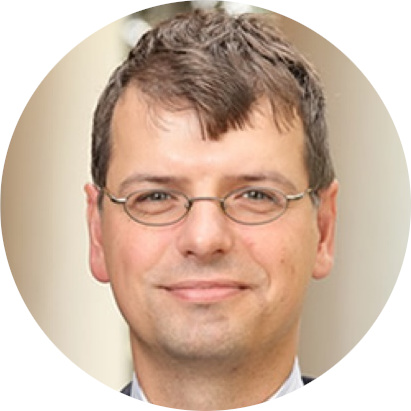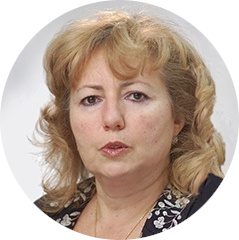Keynote speakers
Prof. Gustavo Rohde 
Professor of Biomedical Engineering, and Electrical and Computer Engineering at the University of Virginia
Transport-based image representations for better machine learning
Abstract: Mathematical and computational modeling techniques play a crucial role in advancing research in biomedical and clinical sciences. As the problems being tackled become increasingly complex, machine learning methods such as deep learning have emerged as a leading approach for analyzing complex image data. Although the results of deep learning are often impressive on specific datasets, its limitations with respect to accuracy, complexity, the need for large datasets, energy consumption, robustness, and interpretability suggest that further improvements are necessary to mitigate the risks of stagnation and ensure the development of safe and reliable methods for biomedical applications. In this talk I will describe a new, optimal transport-based, image representation framework that enables users to solve regression and machine learning problems more easily, significantly enhancing the impact of deep and other machine learning techniques in medicine and biology. This framework can be regarded as a confound removal step, whereby transport confounds such as translation, scaling, and deformations can be modeled and filtered to produce normalized representations. Demonstrations in radiology and digital pathology applications will be shown.
Biography: Gustavo Rohde earned B.S. degrees in physics and mathematics in 1999, and the M.S. degree in electrical engineering in 2001 from Vanderbilt University. He received a doctorate in applied mathematics and scientific computation in 2005 from the University of Maryland. He has served as associate editor for numerous journals including IEEE TIP, Cytometry A, BMC Bioinformatics, IEEE Signal Processing Letters, and Sampling Theory, Signal Processing and Data Analysis. He was program co-chair for IEEE ISBI 21, and past member of the BDMA NIH study section. He was an ISAC council member from 2014-2016.
Prof. Yelena Yesha 
Knight Foundation Endowed Chair of Data Science and AI at the Institute for Data Science and Computing (IDSC) at the University of Miami
Integrating Radiomics and Autonomous AI in the clinical workflow: Economic Considerations and Regulatory Challenges
Abstract: Artificial intelligence (AI) has the potential to revolutionize healthcare, particularly in the field of medical imaging and radiomics-based devices. These devices hold significant promise for improving patient outcomes, enhancing diagnostic accuracy, and optimizing treatment plans. However, integrating AI into clinical practice requires addressing a range of scientific, regulatory, and economic challenges. In this presentation, we will examine issues of bias, data drift, and model drift. We will discuss the scientific methods and approaches that can help address these and ensure the accuracy and reliability of radiomics-based medical devices. We will also explore regulatory challenges associated with the integration of imaging analytics and radiomics models into healthcare, including gaining regulatory approval for AI models and ensuring compliance with privacy and security regulations. We will examine the regulatory environment in the US and globally, and discuss the role of regulatory bodies in evaluating AI-based medical devices. Finally, we will discuss the economic implications of imaging analytics in healthcare, including the costs associated with implementing AI technologies and the potential return on investment. We will examine the differences between traditional and diagnostic AI versus autonomous AI and discuss the cost-benefit analysis of implementing these technologies. Throughout the presentation, we will illustrate these challenges and solutions with real-world examples and use cases.
Biography: Yelena Yesha received her B.Sc. degrees in Computer Science and in Applied Mathematics from York University, Toronto, Canada, and her M.Sc. degree and Ph.D. degree in Computer Science from The Ohio State University. She was the Founding Director of the National Science Foundation Center for Accelerated Real Time Analytics (CARTA), an NSF-funded Industry/University Cooperative Research Center (I/UCRC) that aims to develop long-term partnerships among industry, academia, and government. She serves as the Innovation Officer and Head of International Relations at the Miami University Institute for Data Science and Computing. She is currently working with leading industrial companies and government agencies on innovative technology in the areas of blockchains, cybersecurity, and big data analytics with applications to electronic commerce, climate change, and digital healthcare. In particular, she is leading collaborative efforts with the FDA to develop new technologies and approaches for imaging analytics regulation. Dr. Yesha is a fellow of the IBM Centre for Advanced Studies.
Prof. Robert J. Webster III 
Richard A. Schroeder Professor of Mechanical Engineering at Vanderbilt University
Translating University Research Through Startups to the Real World
Abstract: Being an entrepreneur and a faculty member simultaneously can sometimes be the best way to translate the discoveries we make at universities into real real-world products that impact patient care. This talk will describe experiences over the past 20 years on the progression from napkin sketch, to university research program, to startup company, all the way to ultimately producing a surgical robot capable of use in a real-world operating room. In particular, the talk will share experiences and insights on how intellectual property and startups can resonate with and complement the work we already do as faculty members, and how interdisciplinary collaboration is the key to making a startup work. It will also cover creative funding approaches can accelerate a startup, and how ongoing university research can benefit the startup, and vice versa.
Biography: Dr. Webster received his Ph.D. from Johns Hopkins University 2007, and then joined the faculty at Vanderbilt University. He directs the Medical Engineering and Discovery Laboratory, and co-founded the Vanderbilt Institute for Surgery and Engineering, which brings together physicians and engineers to solve challenging clinical problems. He is a founder and President of Virtuoso Surgical, Inc. and EndoTheia, Inc. which are commercializing technologies invented in his laboratory. Prof. Webster's research interests include surgical robotics and image-guided surgery. He is a recipient of the IEEE Robotics and Automation Society Early Career Award, the National Science Foundation CAREER award, the Robotics Science and Systems Early Career Spotlight Award, IEEE Volz award, and the award for Excellence in Teaching from Vanderbilt University. He holds appointments in Electrical Engineering, Otolaryngology, Neurological Surgery, Urologic Surgery, and Medicine at Vanderbilt.